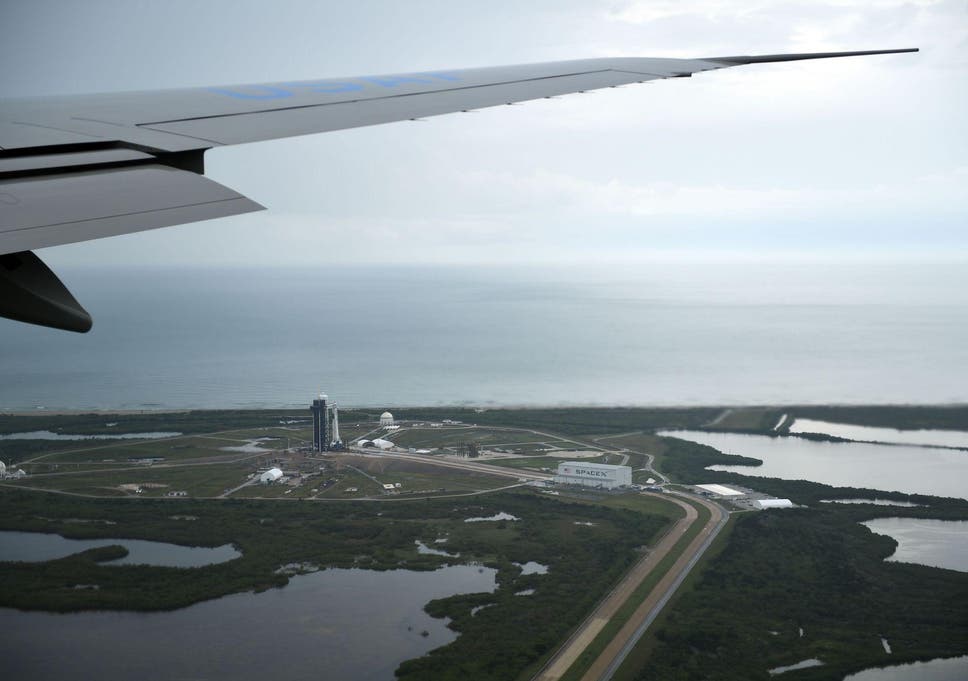
The historic SpaceX and Nasa launch is likely to be "scrubbed" because of weather problems, according to the official forecast.
Newly released information for the rescheduled launch – due to happen on Saturday – show that there is a 60 per cent chance the weather will stop it from happening.
If SpaceX and Nasa are unable to launch on Saturday, they will try again on Sunday. But the forecast shows the same chances of problems on that day, too, with only a 40 per cent chance it will proceed.
Rain and clouds are likely to stop the rocket from being able to liftoff safely, according to the official forecast from the 45th Weather Squadron.
That forecast only gives the likelihood of favourable conditions at the Kennedy Space Center in Florida. A safe launch also requires good weather across the Atlantic, too, to ensure that astronauts would be safe if they were forced to exit the launch and land in the ocean.
If both of those days are ruled out, Nasa will have to wait until 3 June, with another possible window the following day.
Such launches are confined to specific windows because they require such specific planning and must line up correctly with the International Space Station.
Nasa and SpaceX already had to cancel the historic launch on Wednesday night, in part because electricity in the atmosphere meant the liftoff could "trigger lightning".
It would have been the first time that astronauts would have been sent into space from US soil, as well as the first time a private company had put humans into space.
But the launch was postponed just minutes before it was due to happen, with flight controllers unable to satisfy strict tests for weather conditions.
Nasa administrator Jim Bridenstine said the decision was made because there was "simply too much electricity in the atmosphere".
He added: "There wasn't really a lightning storm or anything like that, but there was concern that if we did launch it could actually trigger lightning."
"I know there is a lot of disappointment today. The weather got us."







